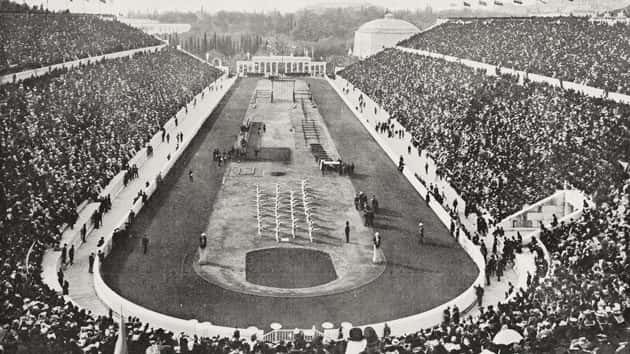
De Agostini / Biblioteca Ambrosiana/Getty Images
 De Agostini / Biblioteca Ambrosiana/Getty Images(NEW YORK) — The Olympic Games that we know and celebrate today stem from events held thousands of years ago in Ancient Greece.
De Agostini / Biblioteca Ambrosiana/Getty Images(NEW YORK) — The Olympic Games that we know and celebrate today stem from events held thousands of years ago in Ancient Greece.
The first recorded evidence of the ancient Olympic Games can be traced back to 776 B.C. The ancient games were dedicated to the Olympian gods and were held on the plains of Olympia in the western part of the Peloponnese. Pelops, king of Pisa in the Peloponnese, is venerated in Greek mythology as the founder of the Olympic Games.
Initially, the games had only one event: the “stadion” foot-race. Coroebus of Elis, a Greek cook, was the first recorded winner of the contest in 776 B.C., according to historical records.
The ancient games were closely linked to the religious festivals of the cult of Zeus, and Olympia became a central site for the worship of the king of the Olympian gods. The games continued for nearly 12 centuries until Roman emperor Theodosius banned them in 393 A.D., decrying them as pagan cults.
The Olympic Games were revived in the 19th century and have since become the world’s premier sporting competition.
The first modern games were held in Athens, Greece, in 1896. Since 1994, the Summer and Winter Games take place separately, alternating every two years.
The 2018 Winter Olympics in Pyeongchang, South Korea, kick off in February, marking the 23rd Winter Olympic Games.
The first Winter Olympics were held in Chamonix, France, in 1924.
Copyright © 2018, ABC Radio. All rights reserved.


